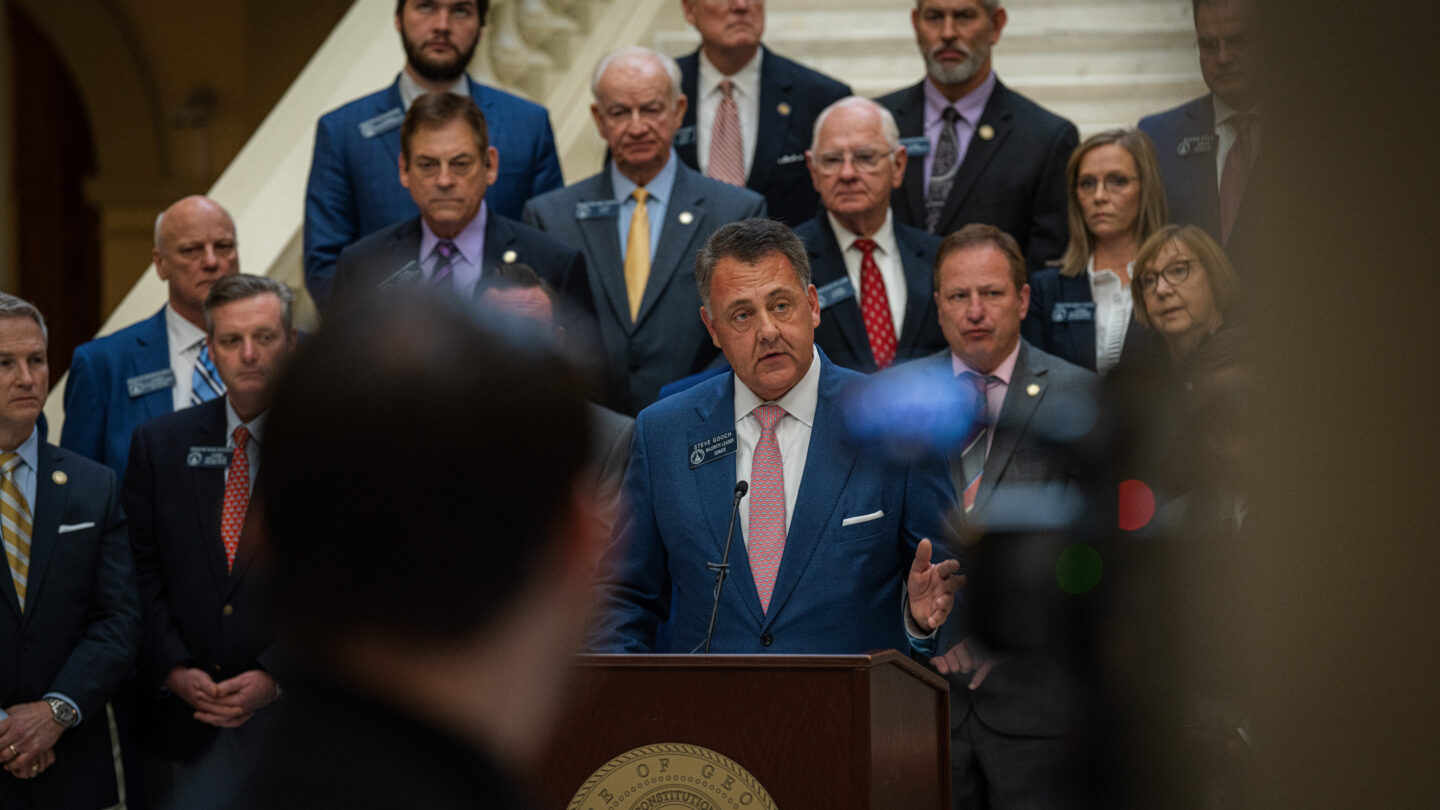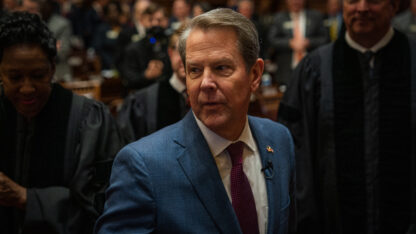Republicans in the Georgia Senate on Thursday announced goals to further lower state income tax rates and improve reading instruction for young public school students, although tax changes are unlikely to occur before the 2024 legislative session and leaders could be find themselves short of time to build the consensus for changes in literacy instruction this year.
The majority party in the Senate, which will likely have 33 of 56 senators once a special election is concluded, also voices support for a number of plans already proposed by Gov. Brian Kemp. The Senate agenda is more specific and ambitious than that of House Speaker Jon Burns, though. A Newington Republican, Burns is taking a wait-and-see approach on many issues after being elevated following the death of longtime Speaker David Ralston.
Senate Republicans voiced support Thursday for Kemp’s plan to spend $1 billion on state income tax rebates and $1.1 billion on property tax rebates for homeowners. They also endorsed Kemp’s plan for grants to help students catch up with things they didn’t learn during the COVID-19 pandemic, to enhance penalties for recruiting children into gangs, to require cash bail for more people accused of crimes and to allow pregnant women to apply for cash welfare benefits before giving birth.
Thursday’s event also showcased efforts by newly elected Lt. Gov. Burt Jones and the Senate majority to work together. Jones, who was a senator until winning election, traded praise with Senate President Pro Tem John Kennedy of Macon, the leader of Senate Republicans. In the four years under Republican Lt. Gov Geoff Duncan, the majority GOP and Duncan often had different priorities.
Jones particularly supports efforts to enhance gang recruitment penalties, require more cash bail and lower the income tax, spokesperson Ines Owens said. Jones ran on a pledge to eliminate the state income tax entirely, although other Republicans warn that isn’t practical because the income tax provides just more than half of the state’s $32 billion in tax revenues.
“We are excited about our agendas and how well they match up together,” Jones said at the news conference Thursday.
Senate Majority Leader Steve Gooch, of Dahlonega, said Republicans look forward to a review of state tax exemptions scheduled to begin in May, hoping that paring down some tax breaks would produce more money that could be used to lower income tax rates.
Last year, Kemp signed into law a state income tax cut that could eventually reduce taxes by more than $2 billion. It starts with creating a flat tax rate of 5.49% as of Jan. 1, 2024, down from a top rate of 5.75% now, a move projected to cut taxes by $450 million. Rates would gradually fall to 4.99% by as soon as 2029, but cuts would pause if state tax revenues stop growing or state reserve funds dwindle.
“Tax reform is to essentially lower the income tax on all Georgians whether you’re a company or an individual taxpayer,” Gooch said. “We’ve lowered that rate already, tremendously. But to see the income tax completely eliminated in Georgia, well, that’s not an easy task.”
Gooch also said senators would work to improve foster care, trying to end the practice of holding some children in hotel rooms or state offices when social workers can’t find a foster home, crisis stabilization unit or treatment facility that will accept foster children with hard-to-treat psychiatric and behavioral problems.
Sen. Billy Hickman, a Statesboro Republican, said he would lead an effort to ensure more Georgia students can read on grade level by the time they finish third grade. He said that would include examining how teachers learn literacy instruction when they are in college, examining state-funded prekindergarten classes, and possibly retraining existing teachers.
Hickman said that although high school graduation rates have climbed steeply, reading achievement remains at a level he finds unacceptable.
“When you really dig into it, the children can’t read,” Hickman said.
Other Senate Republican priorities including working to provide a regulatory framework for charging and taxing electric vehicles, removing unnecessary degree requirements for state jobs and expanding medical care delivered over the internet.









